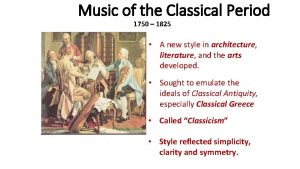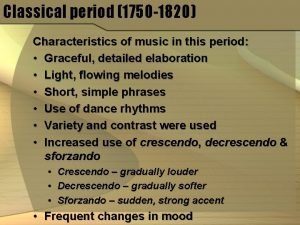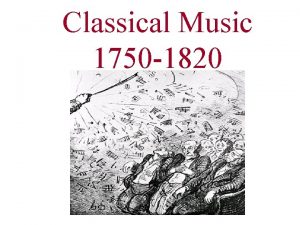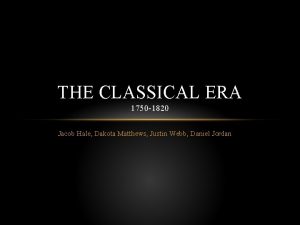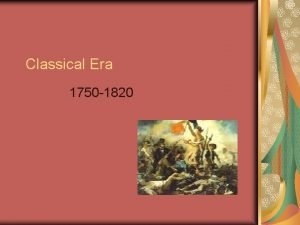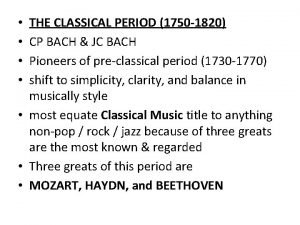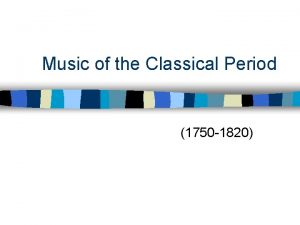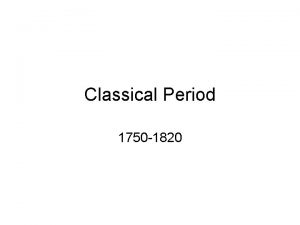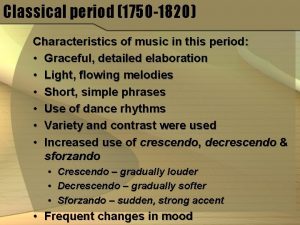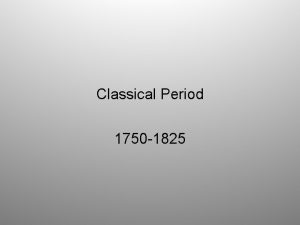Classical period 1750 1820 Characteristics of music in






- Slides: 6

Classical period (1750 -1820) Characteristics of music in this period: • Graceful, detailed elaboration • Light, flowing melodies • Short, simple phrases • Use of dance rhythms • Variety and contrast were used • Increased use of crescendo, decrescendo & sforzando • • • Crescendo – gradually louder Decrescendo – gradually softer Sforzando – sudden, strong accent • Frequent changes in mood

Franz Joseph Haydn (1732 -1809)

Franz Joseph Haydn (1732 -1809) • • • Born in Austria Joined church choir at age 8 Learned to play the violin and keyboard instruments Friend/mentor of Mozart Taught Beethoven His most original ideas were in his string quartets and symphonies (definition – a large composition for orchestra, usually in 3 or 4 movements)

Haydn’s Music • His symphonies & string quartets followed the pattern of the Classical era – the 1 st & 4 th mvmts. are fast, the 2 nd is slow, and the 3 rd is a minuet (a dance in 3, 4 time) • String Quartets were designed for amateur musicians • His string quartets were considered “chamber music” • Def. – “Ensemble instrumental music for up to about ten performers with typically one

Haydn’s Music • String Quartet Opus 76, No. 3 is nicknamed “Emperor” because in the second movement, Haydn quotes the melody from his anthem, “God Save Emperor Francis. ” • The same melody is used for the German national anthem. • • • 1 st movement - https: //www. youtube. com/watch? v=-1 gwt. CA_gec 2 nd movement - https: //www. youtube. com/watch? v=VTydqwn. Hq. CQ German nat’l anthem https: //www. youtube. com/watch? v=Vh. Qw. Le. Mcb. RY • German anthem is the same melody, accept played faster.

Haydn’s music • Called the “Father of the Symphony” • Possibly wrote 106 symphonies • The 12 symphonies he wrote while visiting London were his greatest achievement in orchestral music. Some of them are known by nicknames – “Clock, ” “Surprise, ” “Drum Roll, ” “Miracle, ” “Farewell”
